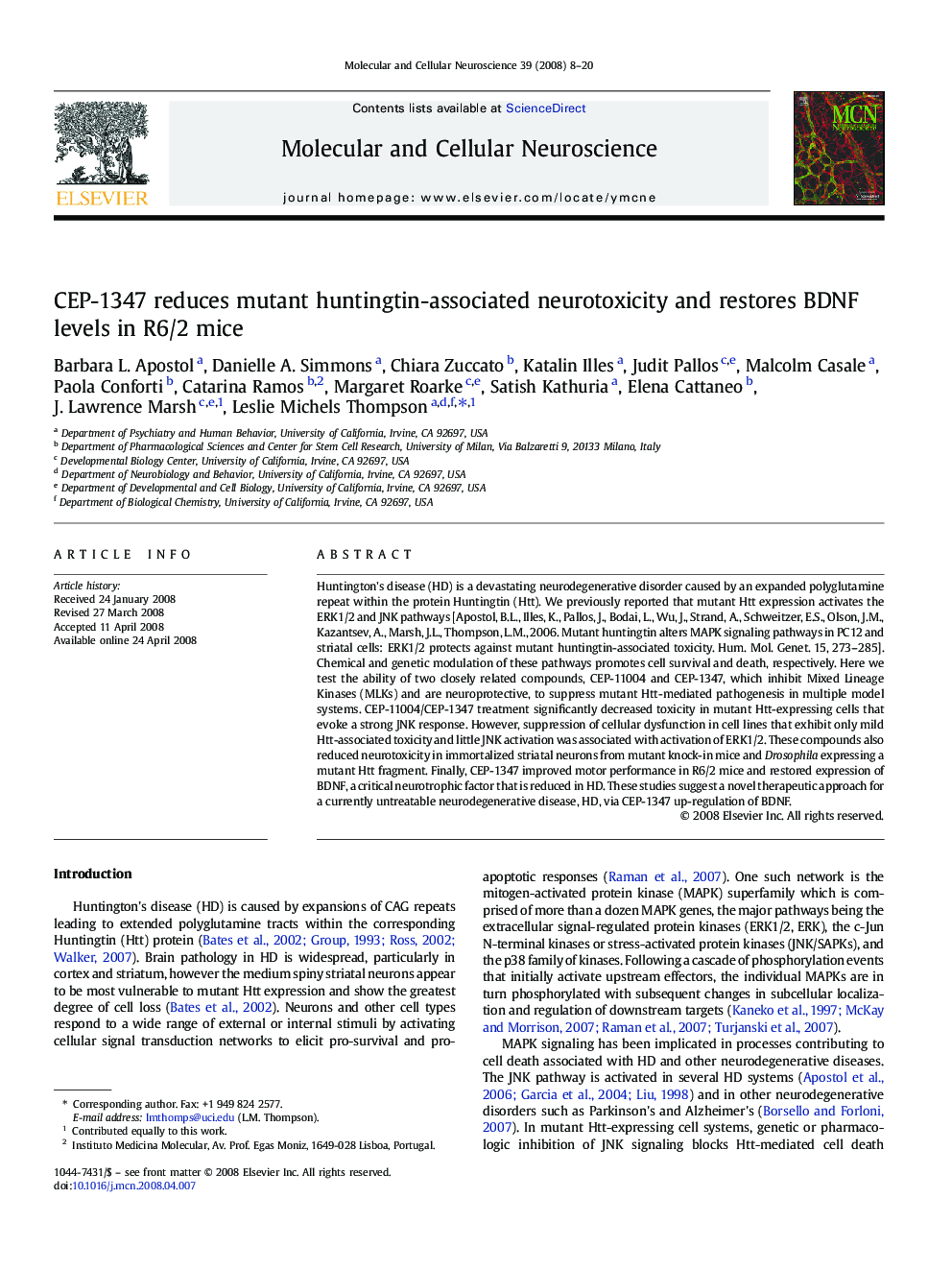| Article ID | Journal | Published Year | Pages | File Type |
|---|---|---|---|---|
| 2198997 | Molecular and Cellular Neuroscience | 2008 | 13 Pages |
Huntington's disease (HD) is a devastating neurodegenerative disorder caused by an expanded polyglutamine repeat within the protein Huntingtin (Htt). We previously reported that mutant Htt expression activates the ERK1/2 and JNK pathways [Apostol, B.L., Illes, K., Pallos, J., Bodai, L., Wu, J., Strand, A., Schweitzer, E.S., Olson, J.M., Kazantsev, A., Marsh, J.L., Thompson, L.M., 2006. Mutant huntingtin alters MAPK signaling pathways in PC12 and striatal cells: ERK1/2 protects against mutant huntingtin-associated toxicity. Hum. Mol. Genet. 15, 273–285]. Chemical and genetic modulation of these pathways promotes cell survival and death, respectively. Here we test the ability of two closely related compounds, CEP-11004 and CEP-1347, which inhibit Mixed Lineage Kinases (MLKs) and are neuroprotective, to suppress mutant Htt-mediated pathogenesis in multiple model systems. CEP-11004/CEP-1347 treatment significantly decreased toxicity in mutant Htt-expressing cells that evoke a strong JNK response. However, suppression of cellular dysfunction in cell lines that exhibit only mild Htt-associated toxicity and little JNK activation was associated with activation of ERK1/2. These compounds also reduced neurotoxicity in immortalized striatal neurons from mutant knock-in mice and Drosophila expressing a mutant Htt fragment. Finally, CEP-1347 improved motor performance in R6/2 mice and restored expression of BDNF, a critical neurotrophic factor that is reduced in HD. These studies suggest a novel therapeutic approach for a currently untreatable neurodegenerative disease, HD, via CEP-1347 up-regulation of BDNF.
